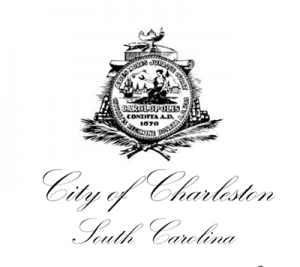Charleston selected to join national What Works Cities initiative
July 12, 2017Today, Mayor John Tecklenburg announced that Charleston has been selected as one of five new cities to participate in Bloomberg Philanthropies’ What Works Cities initiative – one of the largest-ever philanthropic efforts to enhance the use of data and evidence in the public sector. Charleston will receive technical assistance from world-class experts to build capacity to address housing affordability and improve contract services.
Charleston’s selection, along with that of Arlington, TX; Fort Collins, CO; Memphis, TN; and Sioux Falls, SD, was announced today by What Works Cities.
“Across the country, cities of all shapes and sizes are making data the foundation of how they do business and drive greater results for their communities,” said What Works Cities Executive Director Simone Brody. “We’re thrilled to welcome these new cities to this growing movement.”
With today’s new participating cities, What Works Cities is now partnering with 85 cities across the country that are home to more than 27 million people in 37 states and have annual budgets exceeding $94 billion. The initiative will partner with 100 cities on a rolling basis through 2018.
“We are so proud to have been selected as a Bloomberg Philanthropies What Works city,” said Charleston Mayor Tecklenburg. “This initiative will connect us to experts at the Harvard Government Performance Lab and the Center for Government Excellence at Johns Hopkins University to help us use data and evidence to improve our city services, inform our decision-making, and engage our residents.”
With support from a consortium of expert partners, What Works cities are identifying more effective ways to evaluate programs and improve performance; best use resources to serve their communities; and address a range of social challenges – from public safety to affordable housing. What Works Cities participants also join a growing national network of local leaders and global experts actively sharing best practices for outcomes-focused government.
Charleston will establish and improve performance management programs to set, track and share progress toward priority goals, strengthen accountability and achieve better results. Initially this work will focus on gaining a greater understanding of the effectiveness of programs and initiatives related to housing affordability and empower the city to make data-driven decisions.
Additionally, Charleston will focus on managing contracts to deliver better results, bringing greater accountability to how public funds are spent. The city will use results-driven contracting to improve the quality of contracted garbage collection services and will look to see how these methods can be used to improve contract services city-wide.
The consortium of leading organizations assembled by Bloomberg Philanthropies and delivering a program of support to cities comprises the Behavioral Insights Team, the Center for Government Excellence at Johns Hopkins University, theGovernment Performance Lab at the Harvard Kennedy School, Results for America and the Sunlight Foundation.
The five new cities join the following 80 cities partnering with What Works Cities: Albuquerque, NM; Anchorage, AK; Augusta, GA; Baltimore, MD; Birmingham, AL; Boise, ID; Boulder, CO; Buffalo, NY; Bellevue, WA; Boston, MA; Cambridge, MA; Cape Coral, FL; Chattanooga, TN; Charlotte, NC; Corona, CA; Denton, TX; Denver, CO; Des Moines, IA; Downey, CA; Durham, NC; Fargo, ND; Fort Lauderdale, FL; Fort Worth, TX; Gilbert, AZ; Glendale, AZ; Greensboro, NC; Gresham, OR; Hartford, CT; Independence, MO; Indianapolis, IN; Jackson, MS; Kansas City, KS; Kansas City, MO; Knoxville, TN; Laredo, TX; Las Vegas, NV; Lewisville, TX; Lexington, KY; Lincoln, NE; Little Rock, AR; Louisville, KY; Madison, WI; Mesa, AZ; Miami, FL; Milwaukee, WI; Minneapolis, MN; Modesto, CA; Naperville, IL; Nashville, TN; New Haven, CT; New Orleans, LA; Norfolk, VA; Oklahoma City, OK; Olathe, KS; Orlando, FL; Portland, OR; Providence, RI; Raleigh, NC; Rancho Cucamonga, CA; Riverside, CA; Salinas, CA; Salt Lake City, UT; San Francisco, CA; San Jose, CA; Seattle, WA; Scottsdale, AZ; Saint Paul, MN; South Bend, IN; Syracuse, NY; Tacoma, WA; Tempe, AZ; Topeka, KS; Tulsa, OK; Tyler, TX; Victorville, CA; Virginia Beach, VA; Waco, TX; Washington, DC; West Palm Beach, FL; and Wichita, KS.
About Bloomberg Philanthropies
Bloomberg Philanthropies works in more than 120 countries around the world to ensure better, longer lives for the greatest number of people. The organization focuses on five key areas for creating lasting change: Arts, Education, Environment, Government Innovation and Public Health. Bloomberg Philanthropies encompasses all of Michael R. Bloomberg’s charitable activities, including his foundation and his personal giving. In 2016, Bloomberg Philanthropies distributed over half a billion dollars. For more information, please visit bloomberg.org.
About What Works Cities
What Work Cities, launched in April 2015, is one of the largest-ever philanthropic efforts to enhance cities’ use of data and evidence. Through the initiative’s expert partners, which are providing technical assistance to 100 cities on a rolling basis through 2018, cities around the country are receiving support, guidance and resources to succeed. In 2016, What Works Cities was named by Forbes as “one of the ten most promising philanthropic bets” of the year and by Engaging Local Government Leaders as the “most important company operating in the local government arena.” In March 2017, the initiative launchedWhat Works Cities Certification, the first-ever national standard for data-driven governance. The report “What Works Cities: How Local Governments Are Changing Lives,” released in June 2017, summarizes cities’ accomplishments with the initiative. For more information, visit whatworkscities.org.














